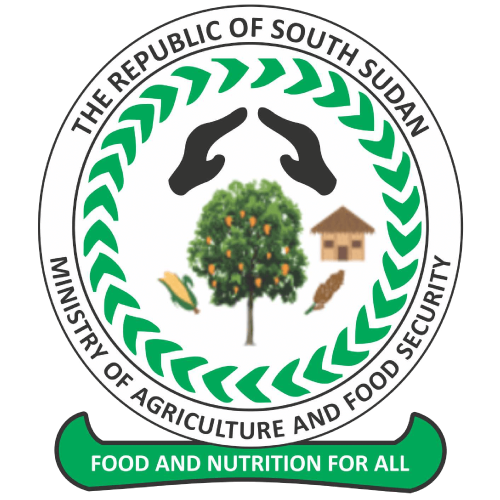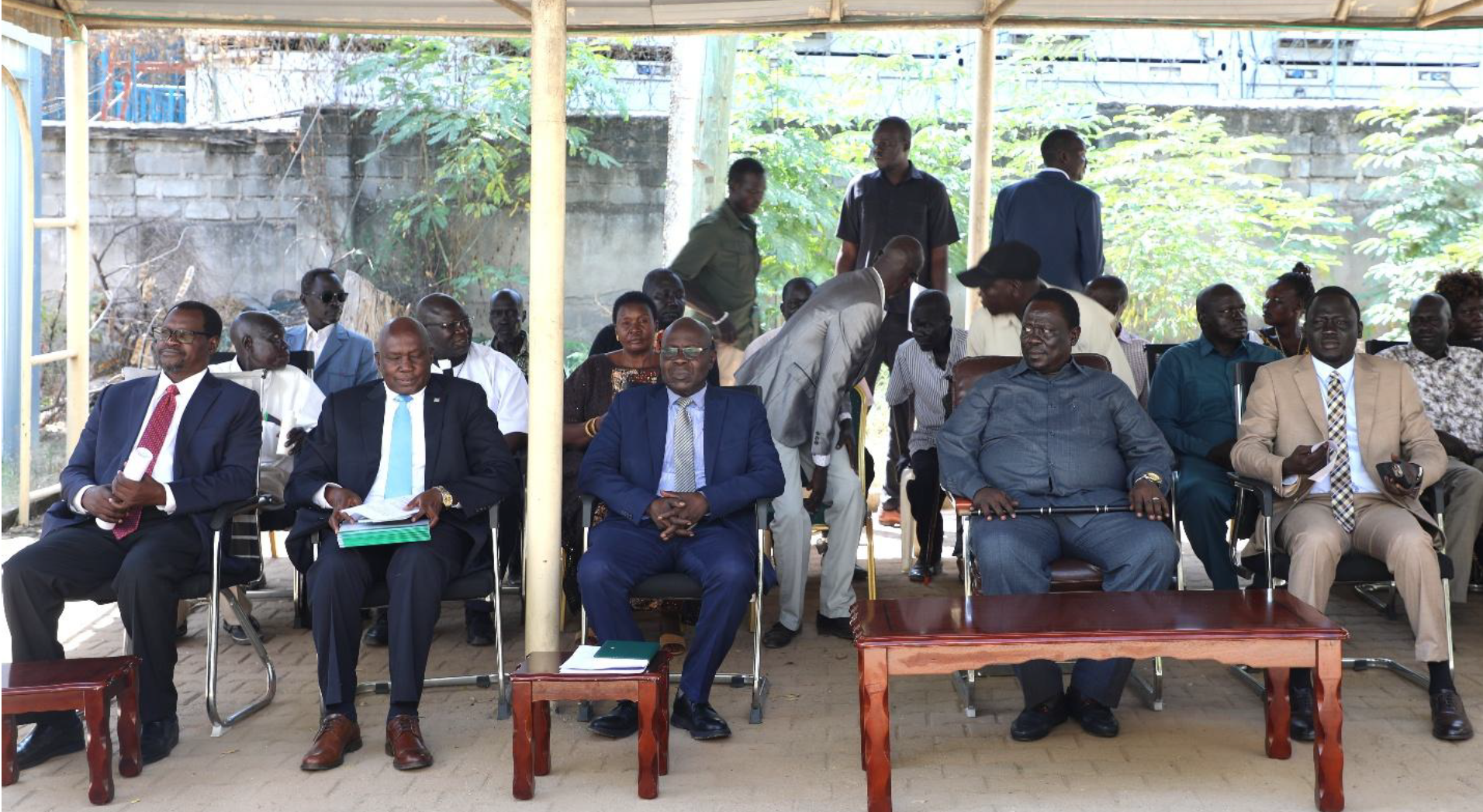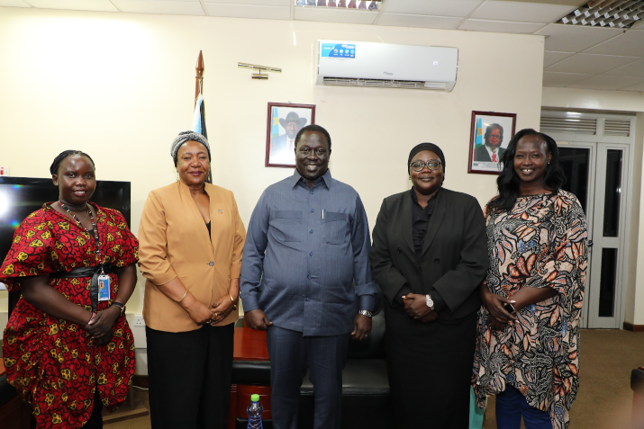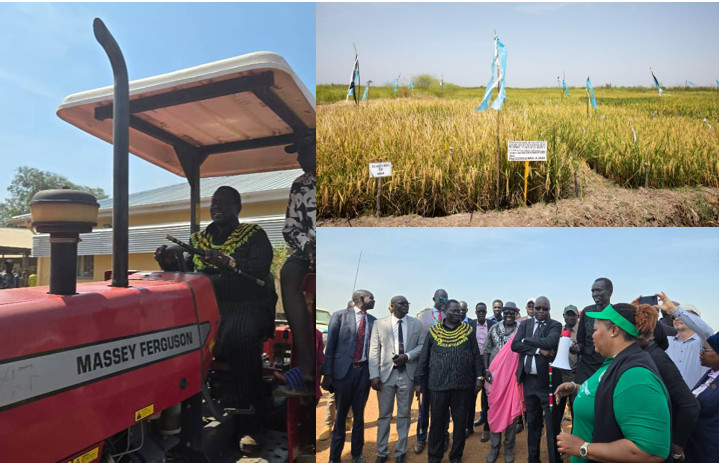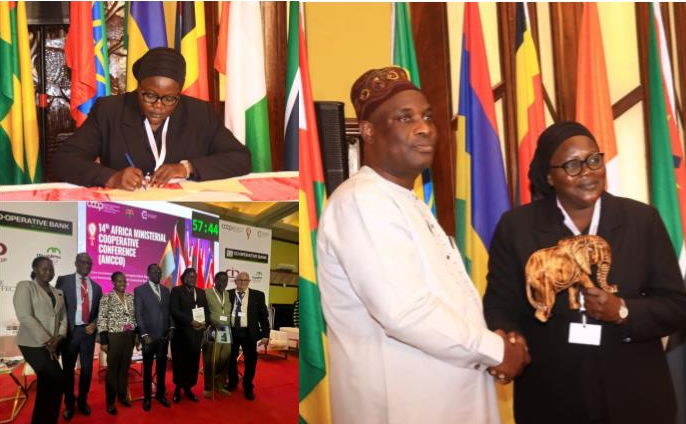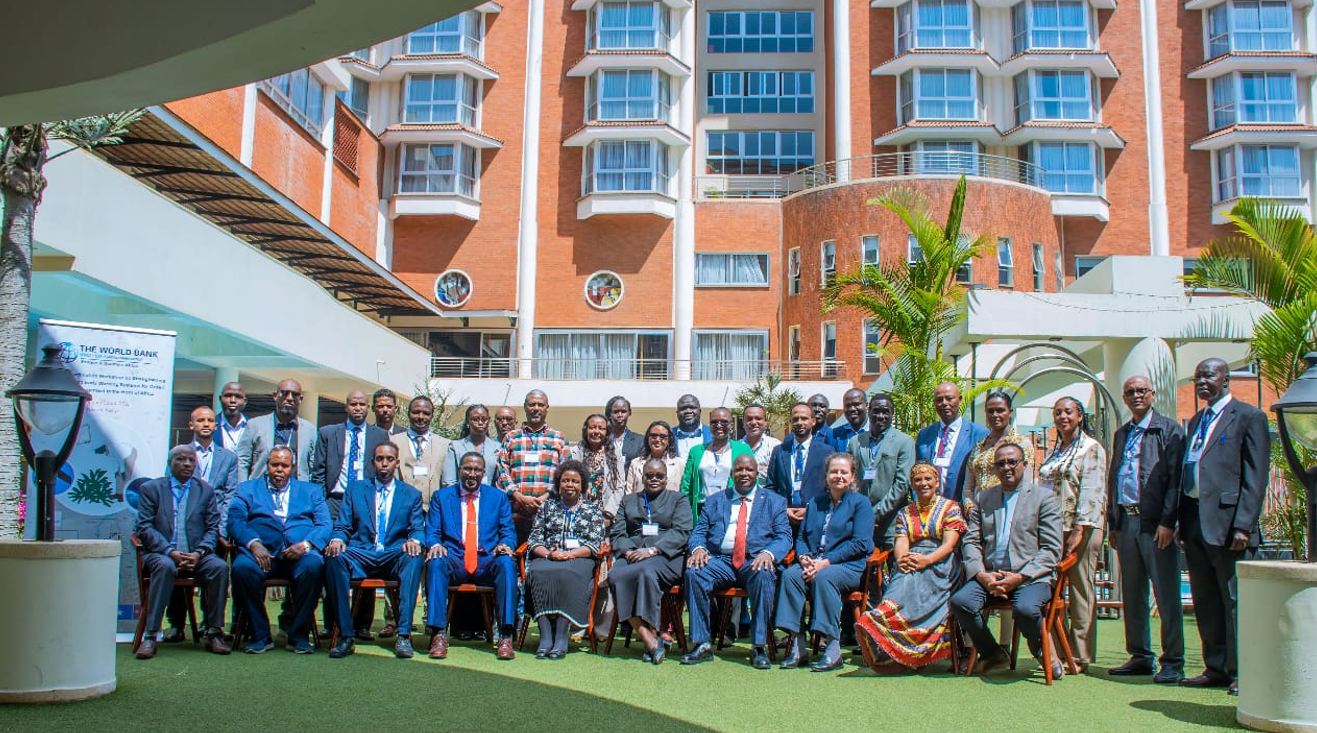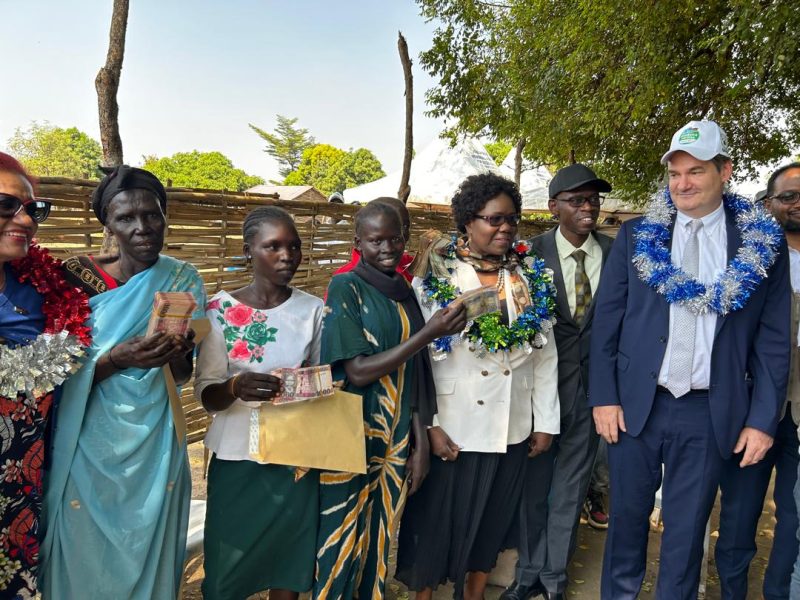
Hon. Josephine Lagu Yanga, Minister for Agriculture and Food Security (MAFS), Center, and Maryam Salim, World Bank Country Director for South Sudan, Eritrea, Ethiopia, and Sudan (Left) and Undeland (Right) pose with direct cash transfer beneficiaries in Jopa. Photo via MAFS/WB.
17 December 2024, Juba. The Government of the Republic of South Sudan through the Ministry of Agriculture and Food Security (MAFS), together with the Ministry of Gender, Child, and Social Welfare (MGSCW) has commenced cash transfer payments for beneficiaries of the Shabaka Meisha Project, marking a major milestone in the implementation of its flagship safety net program. The first batch of cash payments for the beneficiaries in Joppa Quarter Council, Juba County, was officiated by Hon. Josephine Lagu Yanga, Minister of Agriculture and Food Security. She was joined by Maryam Salim, World Bank Country Director for South Sudan, Eritrea, Ethiopia and Sudan, and Cheick Oumar Sylla, Regional Director for North Africa and Horn of Africa, International Finance Corporation (IFC).
The South Sudan Productive Safety Net for Socioeconomic Opportunities Project (SNSOP) also known as Shabaka Meisha, meaning “livelihoods net” is a five-year, US$ 199 million World Bank financed initiative led by the Government of the Republic of South Sudan. project aims to provide cash transfers and income-generating opportunities to 1.1 million individuals 157,500 households in 20 counties across South Sudan and strengthen the National Safety Net Delivery System. Implemented by the Ministry of Agriculture and Food Security and Ministry of Gender, Child and Social Welfare, the program includes cash transfers and Labour-Intensive Public Works to uplift households in addition to behavioral change training.
In Juba and eight additional counties, cash transfer payments began on December 17, 2024. The roll-out follows thorough preparatory activities, including geographical targeting and validating beneficiaries, biometric registration into the Government-led Management Information System, establishing community oversight committees and appeals structures. The cash transfers aim to alleviate the financial burden on vulnerable households amidst inflation and other challenges, enabling them to meet immediate needs and invest in productive activities. Shabaka Meisha will also provide access to socio-economic opportunities to promote human capital development.
Hon. Josephine Lagu emphasized, “Shabaka Meisha addresses immediate households needs helping vulnerable families transition to self-reliance through agriculture and economic activities.” Hon. Esther Ikere Eluzai added, “This initiative supports women, children, and other vulnerable groups, building household resilience and improving welfare.”
World Bank Country Director Maryam Salim highlighted the project’s importance in advancing human capital, climate resilience, and peace in South Sudan and underscored. “World Bank is committed to supporting South Sudan in building a robust social protection system that empowers its citizens and promotes sustainable development. We are pleased to see the Government taking the lead in providing support for its citizens.” Cheick-Oumar Sylla, (IFC’s) Regional Director noted, “This milestone demonstrates the World Bank Group’s commitment to improving the resilience of vulnerable households.”
First launched nationally in August 2023, the Shabaka Meisha project builds on the successes and lessons of earlier initiatives supported by the World Bank, aiming to reduce vulnerability and strengthen resilience of South Sudanese households.
